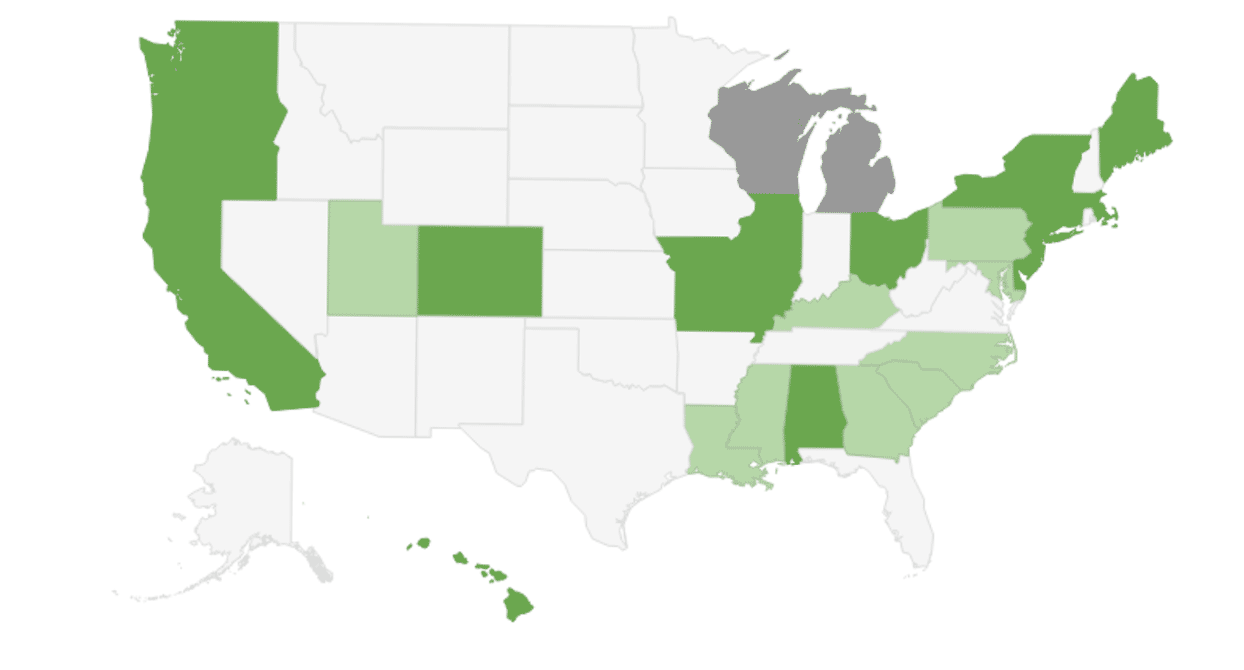Asking about salary history can get you into trouble.
New legislation limits what employers can ask new and current employees about wage and salary history.

Everything Event Companies Need to Know About the Salary History Ban
Cities, counties, and states around the United States are banning employers of all sizes from asking for an applicants pay history, we can help you navigate how these bans affect your hiring process.
“What is your current pay rate?”
“What did you make in your last position?”
These types of pay questions are common during the application and interview process for many service industry and hospitality positions. However, an increasing number of state and local governments have banned these types of questions during and after hiring. If your state has passed these types of bans and you haven’t recently updated your interview and hiring practices, you may want to take a second look to ensure you’re not violating new local regulations.
What are Salary History Inquiry Bans?
State and local governments are increasingly passing laws that prohibit employers from requesting salary history information from applicants and, in some cases, current employees. The goal of these laws is to end entrenched pay discrimination and to close the gender pay gap. Many of these bans have already gone into effect or will in the near future and they impact employers big and small. Whether you’re hiring full-time employees or seasonal event staff, these bans may impact you and, as an employer, it’s important you know how to navigate these laws.
Who is affected?
Salary History Inquiry Bans have been passed state-wide in 17 states with additional local bans being enacted in 19 counties and cities. There are also a number of states pushing back on SHI legislation by banning the ban. Wisconsin and Michigan passed legislation prohibiting salary history inquiry bans in their respective states, meaning local governments cannot regulate pay questions from employers in those states.
Specific regulations vary state-to-state; some bans only affect hiring for state, city or government agencies while other’s exclude employers with less than 15 employees. However, these 13 state’s have bans that have or will go into effect that impact all employers, including government agencies and businesses of all sizes: Alabama, California, Colorado, Connecticut, Delaware, Hawaii, Illinois, Maine, Massachusetts, New Jersey, New York, North Carolina, Oregon, Puerto Rico, Vermount, and Washington.
States Affected by Salary History Ban Legislation

How do you stay compliant?
If you are a hiring manager in any of these affected states or cities it’s important you stay compliant with your state laws - violating these bans can lead to hundreds or thousands of dollars in fines.
To stay compliant, we recommend these best practices:
Review your companies existing interviewing and onboarding practices, policies and procedures to ensure compliance.
Review existing job applications, online and on paper, and make sure those documents do not contain any requests for applicants to disclose their pay history.
Train all employees involved in interviewing and onboarding to ensure they are not asking candidates about wage history. Hiring managers should be trained to focus on an applicant’s pay requirements and expectations versus wage history, emphasizing that your company’s pay corresponds with experience.
Staying Compliant After Hiring
Remember, many states ban wage history inquiries even after hiring a new employee. Pay should be based on the requirements of the position and on the employee's previous experience and capabilities. More than ever, when having pay discussions it’s important to have your employee's actual performance data on hand.
Use Roosted to track your employee's performance using our rating system. You’ll get real-time feedback on their performance, identify where they may need improvement, and track if they’re late to shifts. Combine this data with time tracking reports, and you’ve got a surefire way to cultivate top tier candidates and weed out the non-performers.
Contact a Client Success Engineer for more information about our rating system or to learn more about employee scheduling and the online scheduling software tools that we offer.
